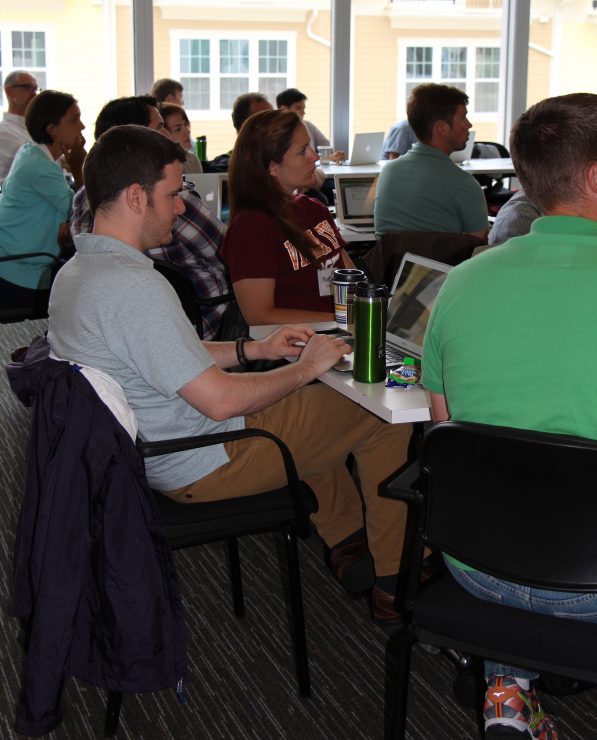Environmental Advocacy in the Chesapeake Bay Watershed
August 30, 2017
On August 12-13, 2017, the Executive Master of Natural Resources (XMNR) graduate degree program convened a series of learning modules on “Environmental Advocacy in the Chesapeake Bay Watershed”. The purpose of these executive education sessions was to introduce “advocacy” as a strategy for having influence on complex socio-ecological systems such as transboundary watersheds.
By advocacy we mean advancing an environmental agenda by influencing the decisions of policy makers and those that implement those policies. It is a big umbrella term that covers a wide variety of tactics including lobbying local, state, and federal government officials, mounting legal campaigns, targeting election campaigns, testifying at science advisory boards, participating in agency rulemaking, and so on.
Prior to class, students examined advocacy through the analytical lens of the Advocacy Coalition Framework (ACF). The ACF bears some resemblance to the CLiGS 3SO tool: Stakeholders use Strategies to influence System Outcomes. Both address stakeholders (though the ACF focuses specifically upon individuals), both include systems (thought the ACF uses geography to define a subsystem), and both ultimately examine strategies to achieve outcomes (the ACF focuses, of course, on advocacy coalitions as the vehicles for that strategy). Whereas the ACF is really only concerned with policy change, the 3SO can be applied to a much broader collection of challenges and opportunities related to sustainable development.
Key questions to consider regarding advocacy and the ACF:
- Who are the individuals in play?
- Did coalitions form and, if so, how?
- What strategies were deployed by these coalitions to achieve policy goals?
- What is the power of the ACF in helping you to understand and even predict policy advocacy?

In the classroom, Joe Maroon, Executive Director of the Virginia Environmental Endowment, moderated a panel discussion with several guest experts including, Michael Town with Virginia League of Conservation Voters, Eliza Cave with Audubon Naturalist Society, Nat Mund with Southern Environmental Law Center. Following the panel, Eric Eckl, Principal of Water Words That Work, led a workshop on Combat Communications and Michael Mortimer, Director of CLiGS, led a debrief and recap of key environmental advocacy concepts.
By the completion of these learning module, students were able to define and critically analyze advocacy, be able to identify specific advocacy tactics, and prioritize among which of these tactics will help different types of organizations influence the outcomes they desire.


